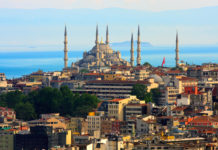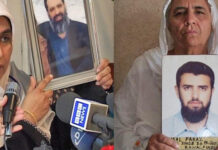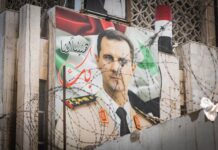The former Israeli military commander and prime minister Ariel Sharon died today after spending the last eight years in a coma. Loved by Israelis and hated by Arabs, 5Pillarz looks back on his life.
Ariel Sharon was born on 26 February 1928 in Kfar Malal, then in the British Mandate of Palestine, to a family of Belarusia Jews.
In 1942 at the age of 14, Sharon joined the Gadna, a paramilitary youth battalion, and later the Haganah, the underground paramilitary force and the Jewish military precursor to the Israel Defense Forces (IDF). Sharon’s unit of the Haganah became engaged in serious and continuous combat from the autumn of 1947, with the onset of the Battle for Jerusalem.
His unit took to making offensive hit-and-run raids on Arab forces in the vicinity of Kfar Malal. In units of thirty men, they would hit constantly at Arab villages, bridges and bases, as well as ambush the traffic between Arab villages and bases.
Following the Israeli Declaration of Independence and the onset of the War of Independence, his platoon fended off the Iraqi advance at Kalkiya. Sharon was regarded as a hardened and aggressive soldier, swiftly moving up the ranks during the war.
Unit 101
In 1950, on the direct orders of the Prime Minister, Sharon returned to active service in the rank of major, as the leader of the new Unit 101, a special forces unit whose purpose was to execute reprisal operations in response to Palestinian fedayeen attacks.
Subscribe to our newsletter and stay updated on the latest news and updates from around the Muslim world!
The unit consisted of 50 men, mostly former paratroopers. They were armed with non-standard weapons and tasked with carrying out special reprisals across the state’s borders – mainly establishing small unit maneuvers, activation and insertion tactics. Training included actively seeking enemy engagements across Israel’s borders.
Unit 101 undertook a series of raids against Jordan, which then held the West Bank. The raids also helped bolster Israeli morale and convince Arab states that the fledgling nation was capable of long range military action.
The unit was known for raids against Arab civilians and military targets, most notably the widely condemned Qibya massacre in the fall of 1953, in which 69 Palestinian civilians, some of them children, were killed when Sharon’s troops dynamited buildings there in a reprisal for a fedayeen attack in Yehud.
Sharon said that the unit had checked all houses before detonating the explosives and that he had “thought the houses were empty”.
Suez war
In the 1956 Suez War, Sharon commanded Unit 202 (the Paratroopers Brigade), and was responsible for taking ground east of the Sinai’s Mitla Pass and eventually taking the pass itself.
Having successfully carried out the first part of his mission (joining a battalion parachuted near Mitla with the rest of the brigade moving on ground), Sharon’s unit was deployed near the pass. But neither reconnaissance aircraft nor scouts reported enemy forces inside the Mitla Pass. Sharon, whose forces were initially heading east, away from the pass, reported to his superiors that he was increasingly concerned with the possibility of an enemy thrust through the pass, which could attack his brigade from the flank or the rear.
Sharon asked for permission to attack the pass several times, but his requests were denied, though he was allowed to check its status so that if the pass was empty, he could receive permission to take it later.
Sharon sent a small scout force, which was met with heavy fire and became bogged down due to vehicle malfunction in the middle of the pass. Sharon ordered the rest of his troops to attack in order to aid their comrades. Sharon was criticized by his superiors and he was damaged by allegations several years later made by several former subordinates, who claimed that Sharon tried to provoke the Egyptians and sent out the scouts in bad faith, ensuring that a battle would ensue.
During the ensuing action, the Egyptians were defeated and forced to retreat. A total of 260 Egyptian and 38 Israeli soldiers were killed during the battle at Mitla. Sharon’s actions were surrounded in controversy due to these deaths, which many within the IDF criticized as being the result of an act of unnecessary and unauthorised aggression.
Yom Kippur war
At the start of the Yom Kippur War on 6 October 1973, Sharon was called back to active duty along with his assigned reserve armored division.
His forces did not engage the Egyptian Army immediately, despite his requests. Under cover of darkness Sharon’s forces moved to a point on the Suez Canal that had been prepared before the war. Bridging equipment was thrown across the canal on 17 October. The bridgehead was between two Egyptian Armies. He then headed north towards Ismailia, intent on cutting the Egyptian second army’s supply lines, but his division was halted south of the Fresh Water Canal.
Abraham (Bren) Adan’s division passed over the bridgehead into Africa advancing to within 101 kilometers of Cairo. His division managed to encircle Suez, cutting off and encircling the Third Army. Tensions between the two generals followed Sharon’s decision, but a military tribunal later found his action was militarily effective.
Sharon’s complex ground maneuver is regarded as a decisive move in the Yom Kippur War, undermining the Egyptian Second Army and encircling the Egyptian Third Army. This move was regarded by many Israelis as the turning point of the war in the Sinai front. Thus, Sharon is widely viewed as responsible for Israel’s ground victory in the Sinai in 1973.
Sabra and Shatilla
After retiring from military service, he was instrumental in establishing Likud in July 1973 by a merger of Herut, the Liberal Party and independent elements. .
Later when Sharon joined Prime Minister Begin’s government he had relatively little political experience. During this period, Sharon supported the Gush Emunim settlements movement and was viewed as the patron of the settlers’ movement. He used his position to encourage the establishment of a network of Israeli settlements in the occupied territories to prevent the possibility of Palestinian Arabs’ return of these territories. Sharon doubled the number of Jewish settlements on the West Bank and Gaza Strip during his tenure.
On his settlement policy, Sharon said while addressing a meeting of the Tzomet party: “Everybody has to move, run and grab as many (Judean) hilltops as they can to enlarge the (Jewish) settlements because everything we take now will stay ours. … Everything we don’t grab will go to them.”

After the 1981 elections, Menachem Begin rewarded Sharon for his important contribution to Likud’s narrow win, by appointing him Minister of Defense.
During the 1982 Lebanon War, while Sharon was Defense Minister, the Sabra and Shatila massacre occurred between 16 September and 18. Between 800 and 3,500 Palestinian civilians in the Sabra and Shatila refugee camps were killed by the Phalanges – Lebanese Maronite Christian militias.
The Security Chief of the Phalange militia, Elie Hobeika, was the ground commander of the militiamen who entered the Palestinian camps and killed the Palestinians. The Phalange had been sent into the camps to clear out PLO fighters while Israeli forces surrounded the camps, blocking camp exits and providing logistical support. The killings led some to label Sharon “the Butcher of Beirut”.
The investigative Kahan Commission (1982) found the Israeli Defence Forces indirectly responsible for the massacre, as the IDF held the area, and that no Israeli was directly responsible for the events which occurred in the camps.
The Commission determined that the massacre at Sabra and Shatilla was carried out by a Phalangist unit, acting on its own but its entry was known to Israel and approved by Sharon. Prime Minister Begin was found responsible for not exercising greater involvement and awareness in the matter of introducing the Phalangists into the camps.
The Commission also concluded that the defense minister (Sharon) bore personal responsibility “for ignoring the danger of bloodshed and revenge [and] not taking appropriate measures to prevent bloodshed”. It said Sharon’s negligence in protecting the civilian population of Beirut, which had come under Israeli control, amounted to a dereliction of duty of the minister. The commission recommended in early 1983 the removal of Sharon from his post as Defense minister and stated:
Sharon initially refused to resign as Defense Minister and Begin refused to fire him. After a grenade was thrown into a dispersing crowd of an Israeli Peace Now march, killing Emil Grunzweig and injuring 10 others, a compromise was reached: Sharon agreed to forfeit the post of Defense Minister but stayed in the cabinet as a minister without portfolio.
Al Aqsa intifada
On 28 September 2000, Sharon and an escort of over 1,000 Israeli police officers visited the Temple Mount complex, site of the Dome of the Rock and al-Aqsa Mosque, the holiest place in the world to Jews and the third holiest site in Islam. Sharon declared that the complex would remain under perpetual Israeli control.
Palestinian commentators accused Sharon of purposely inflaming emotions with the event to provoke a violent response and obstruct success of delicate ongoing peace talks. On the following day, a large number of Palestinian demonstrators and an Israeli police contingent confronted each other at the site.
Sharon’s visit, a few months before his election as Prime Minister, came after archeologists claimed that extensive building operations at the site were destroying priceless antiquities.

Soon after, following the collapse of Ehud Barak’s government, Sharon was elected Prime Minister in February 2001.
In May 2003, Sharon endorsed the Road Map for Peace put forth by the United States, European Union, and Russia, which opened a dialogue with Mahmud Abbas, and announced his commitment to the creation of a Palestinian state in the future.
He embarked on a course of unilateral withdrawal from the Gaza Strip, while maintaining control of its coastline and airspace. Sharon’s plan was welcomed by both the Palestinian Authority and Israel’s left wing as a step towards a final peace settlement. However, it was greeted with opposition from within his own Likud party and from other right wing Israelis, on national security, military, and religious grounds.
Disengagement from Gaza
Sharon controversially expelled 9,480 Jewish settlers from 21 settlements in Gaza and four settlements in the northern West Bank. Once it became clear that the evictions were definitely going ahead a group of conservative Rabbis, led by Yosef Dayan, placed an ancient curse on him known as the Pulsa diNura, calling on the Angel of Death to intervene and kill him.
After Israeli soldiers bulldozed every settlement structure except for several former synagogues, Israeli soldiers formally left Gaza on 11 September 2005 and closed the border fence at Kissufim. While his decision to withdraw from Gaza sparked bitter protests from members of the Likud party and the settler movement, opinion polls showed that it was a popular move among most of the Israeli electorate with more than 80% of Israelis backing the plans.
Stroke
Sharon’s stroke in 2005 occurred a few months before he had been expected to win a new election and was widely interpreted as planning on “clearing Israel out of most of the West Bank”, in a series of unilateral withdrawals.
Sharon suffered from obesity from the 1980s and also had suspected chronic high blood pressure and high cholesterol – he was reputed to be 170 cm (5 ft 7 in) tall and to weigh 115 kg (250 lb). His staff car would reportedly be stocked with snacks, vodka and caviar.
Stories of Sharon’s appetite and obesity were legendary in Israel. He would often joke about his love of food and expansive girth. He was a daily consumer of cigars and luxury foods. Numerous attempts by doctors, friends and staff to impose a balanced diet on Sharon were without avail.
Sharon was hospitalized on 18 December 2005, after suffering a minor ischemic stroke. During his hospital stay, doctors discovered a heart defect requiring surgery and ordered bed rest pending a cardiac catheterization scheduled for 5 January 2006. Instead, Sharon returned immediately to work and suffered a hemorrhagic stroke on 4 January, the day before surgery. After two surgeries lasting 7 and 14 hours, doctors stopped the bleeding in Sharon’s brain, but were unable to prevent him from entering into a coma.
Sharon underwent a series of subsequent surgeries related to his state. He remained in a long-term care facility from 6 November 2006 until the time of his death.
In 2005, he was voted the 8th-greatest Israeli of all time, in a poll by the Israeli news website Ynet to determine whom the general public considered the 200 Greatest Israelis.










![24 Hour Road Trip Through Free Syria [Short Film]](https://5pillarsuk.com/wp-content/uploads/2025/02/IMG_5907-218x150.jpg)











